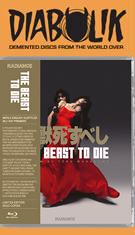
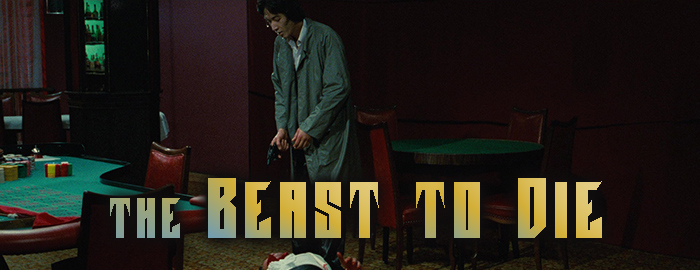
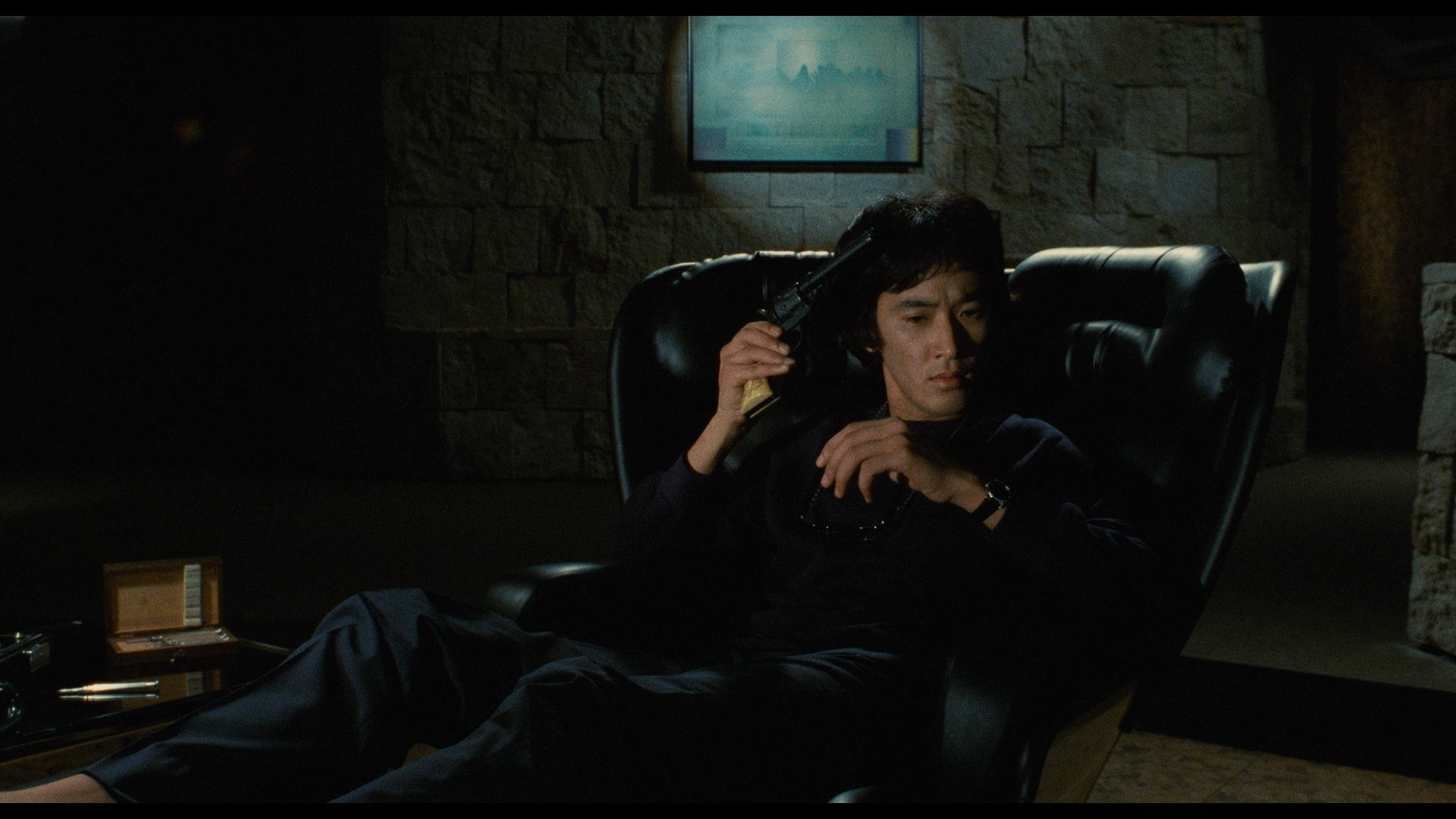 thriller barely seen outside of Japan for years, The Beast to Die marked the end of the collaborations between director
thriller barely seen outside of Japan for years, The Beast to Die marked the end of the collaborations between director 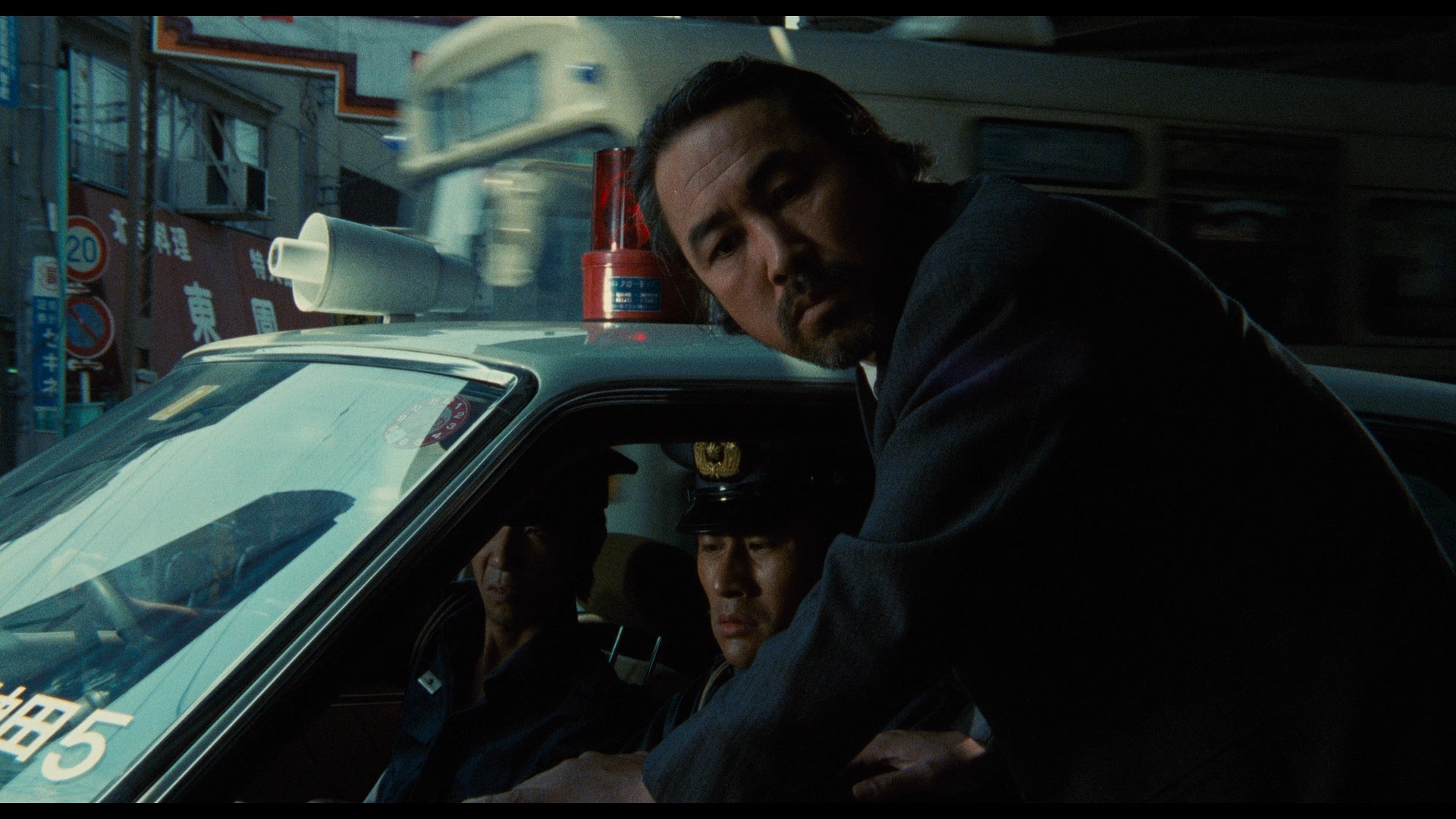 Tôru Murakawa and star Yûsaku Matsuda that encompassed six films (including The Resurrection of the Golden Wolf and the Game trilogy) and multiple TV shows. Loosely adapted from a previously-filmed cult favorite novel by Haruhiko Ôyabu (Cruel Gun Story) by Shoichi Maruyama (consecutively with the Matsuda classic Yokohama BJ Blues), it's an extremely grim fusion of Namsploitation (with some clear nods to the last act of The Deer Hunter) and the isolated homicidal loner idea made famous by Taxi Driver and later mutated into more extreme variations in America the same year with Maniac, Don't Go in the House, and so on. Still jarring by today's standards, it's a film with plenty on its mind and a high point for everyone involved with Murakawa hurling himself to a frightening degree into his role complete with massive weight loss and even removing his molars.
Tôru Murakawa and star Yûsaku Matsuda that encompassed six films (including The Resurrection of the Golden Wolf and the Game trilogy) and multiple TV shows. Loosely adapted from a previously-filmed cult favorite novel by Haruhiko Ôyabu (Cruel Gun Story) by Shoichi Maruyama (consecutively with the Matsuda classic Yokohama BJ Blues), it's an extremely grim fusion of Namsploitation (with some clear nods to the last act of The Deer Hunter) and the isolated homicidal loner idea made famous by Taxi Driver and later mutated into more extreme variations in America the same year with Maniac, Don't Go in the House, and so on. Still jarring by today's standards, it's a film with plenty on its mind and a high point for everyone involved with Murakawa hurling himself to a frightening degree into his role complete with massive weight loss and even removing his molars. 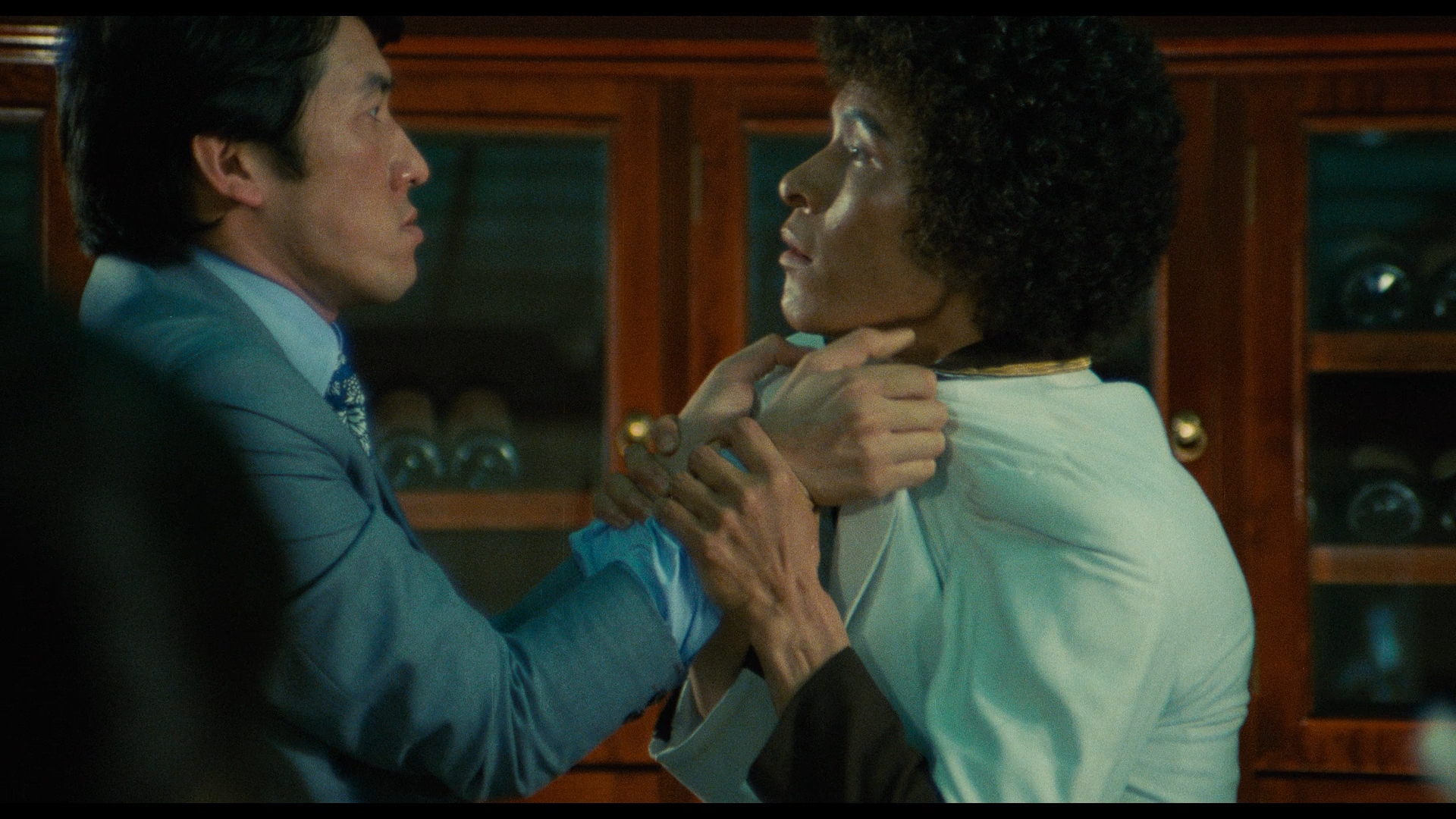 several low-level gangsters at a gambling den. A cold and calculating presence, he spends his downtime listening to classical music a la A Clockwork Orange and going to live performances. That routine gets interrupted again when
several low-level gangsters at a gambling den. A cold and calculating presence, he spends his downtime listening to classical music a la A Clockwork Orange and going to live performances. That routine gets interrupted again when 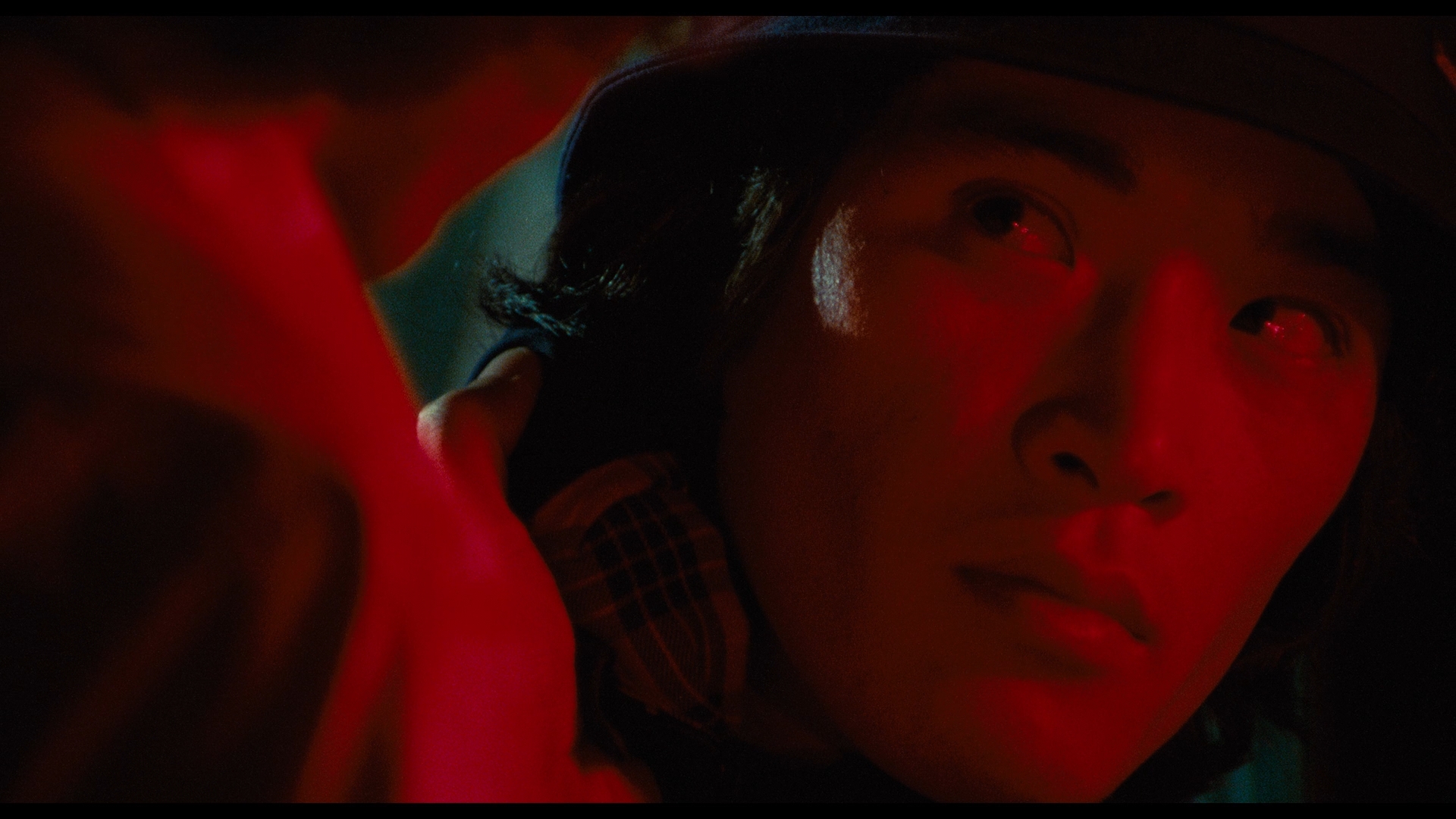 he brings in a criminal associate, violence-prone and curly afro-sporting waiter Sanada (Death Note's Kaga), which results in an escalating crime spree that leads to an ambitious and brutal bank robbery. Complicating things is possible love interest Reiko (pop singer Kobayashi), while the cop on their trail, Detective Kashiwagi (Murota), has an unorthodox approach to foiling their plans.
he brings in a criminal associate, violence-prone and curly afro-sporting waiter Sanada (Death Note's Kaga), which results in an escalating crime spree that leads to an ambitious and brutal bank robbery. Complicating things is possible love interest Reiko (pop singer Kobayashi), while the cop on their trail, Detective Kashiwagi (Murota), has an unorthodox approach to foiling their plans.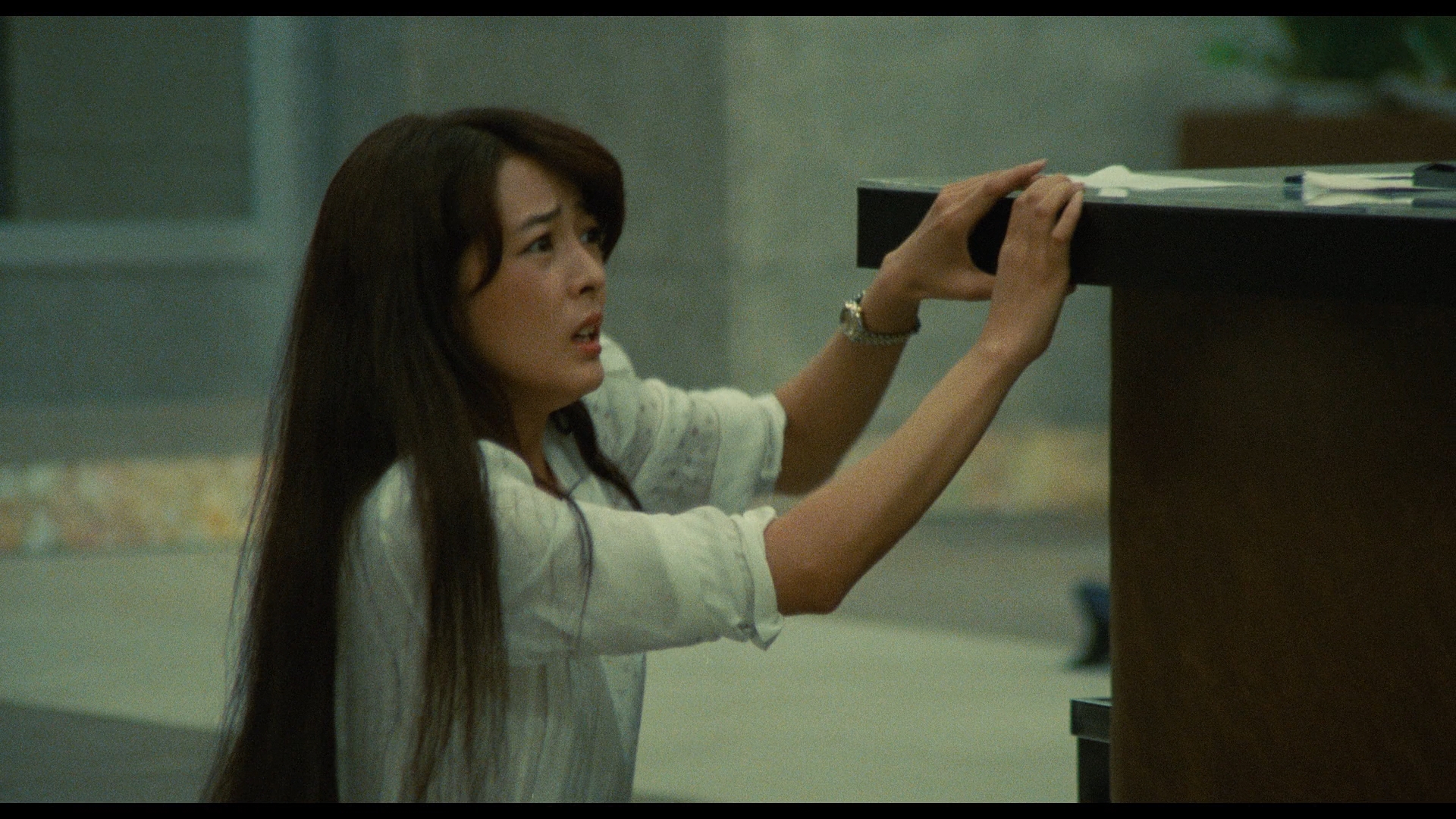 it in a new direction. Though the film isn't necessarily excessive, it does punch you in the face with some convincing bullet squib
it in a new direction. Though the film isn't necessarily excessive, it does punch you in the face with some convincing bullet squib 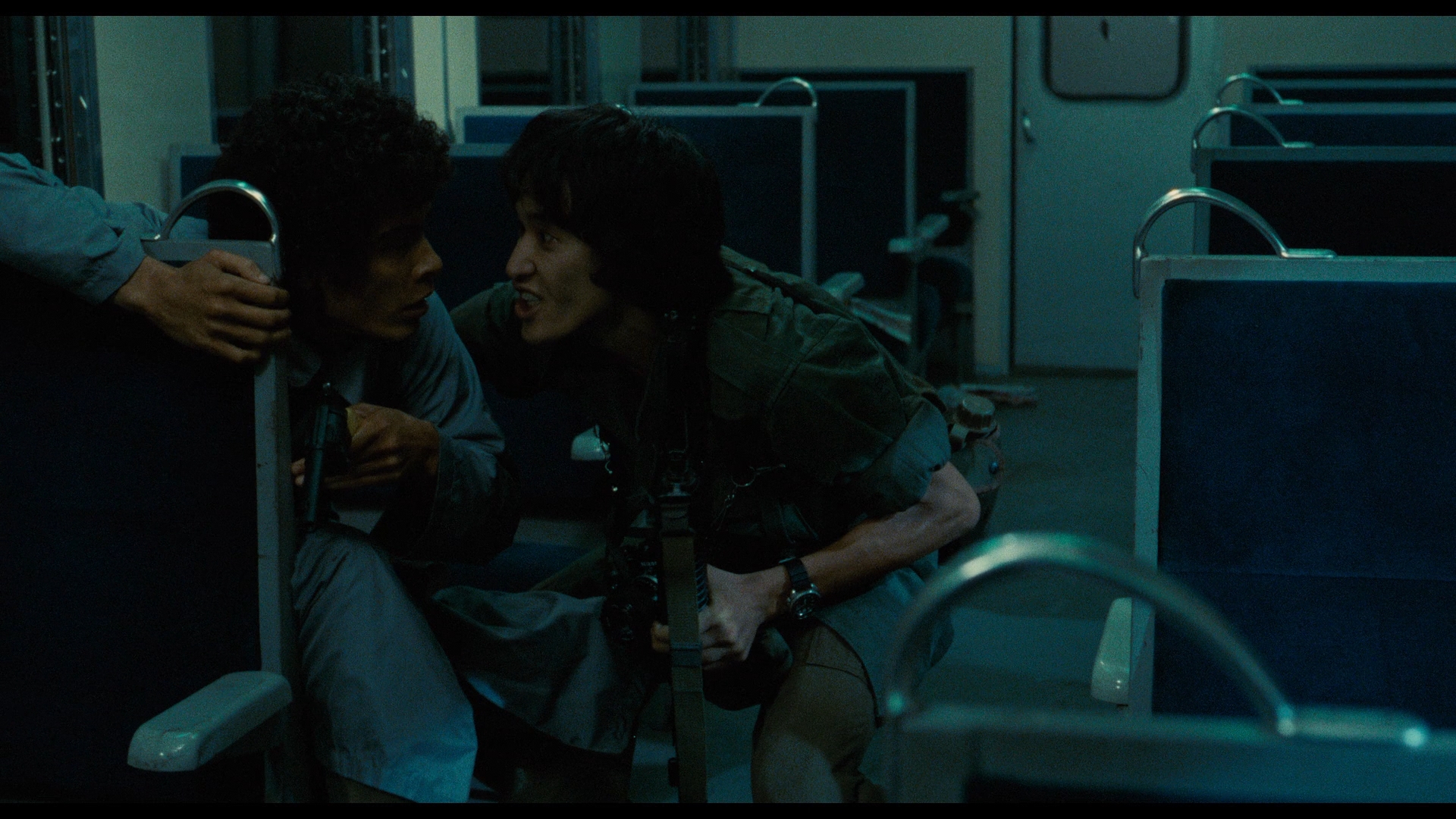 work and a mostly implied but deeply grotesque sequence near the end you won't believe was included in a mainstream film. Matsuda is a marvel here with his celebrated "Rip Van Winkle" speech late in the game on a passenger train being a particular highlight, but everyone is clearly giving their all to a film that clearly wouldn't have mass appeal at the time.
work and a mostly implied but deeply grotesque sequence near the end you won't believe was included in a mainstream film. Matsuda is a marvel here with his celebrated "Rip Van Winkle" speech late in the game on a passenger train being a particular highlight, but everyone is clearly giving their all to a film that clearly wouldn't have mass appeal at the time. 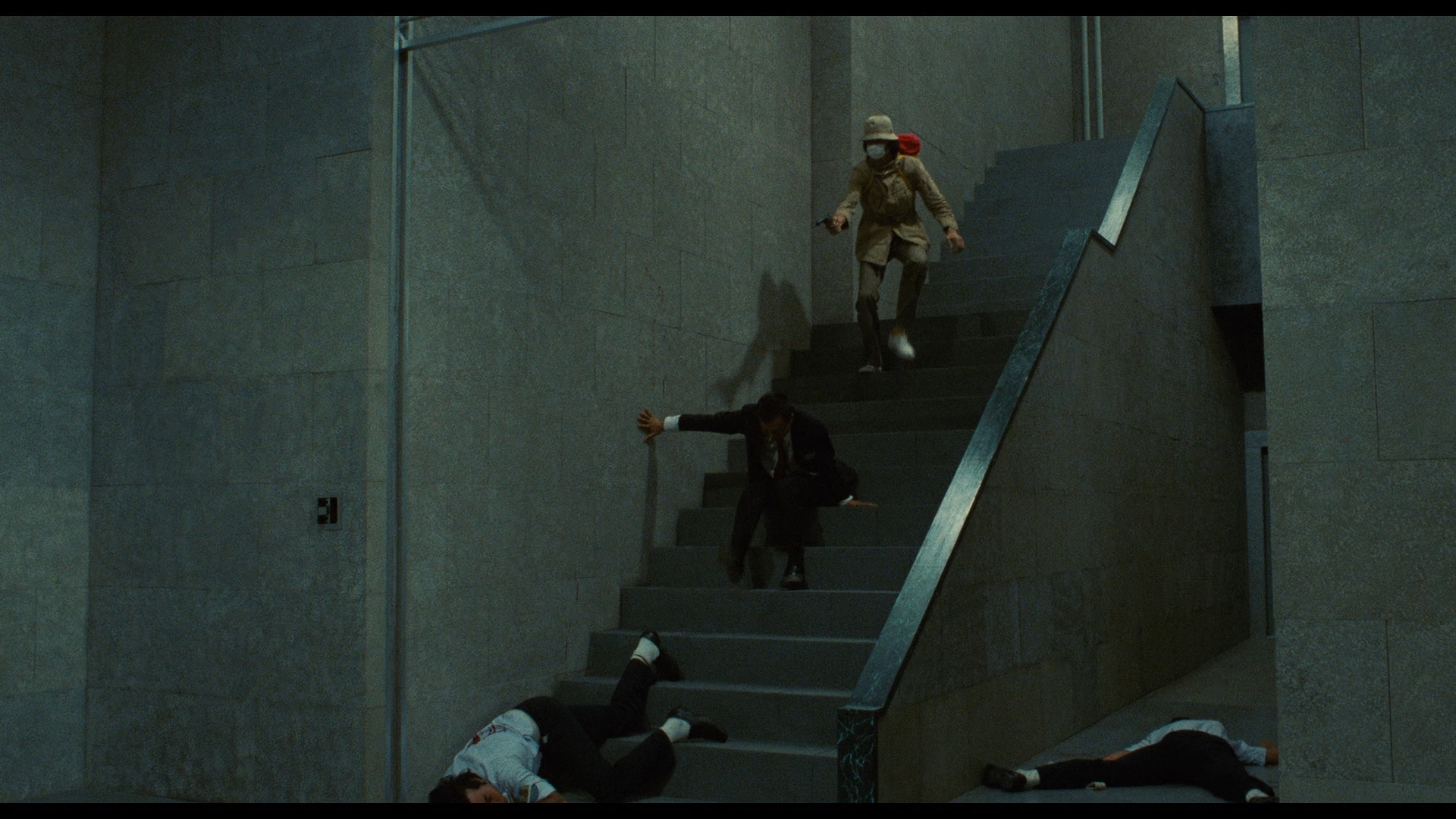 remarkable of the extras is an outstanding video interview with Murakawa (20m25s) who explains the Greek mythology that
remarkable of the extras is an outstanding video interview with Murakawa (20m25s) who explains the Greek mythology that 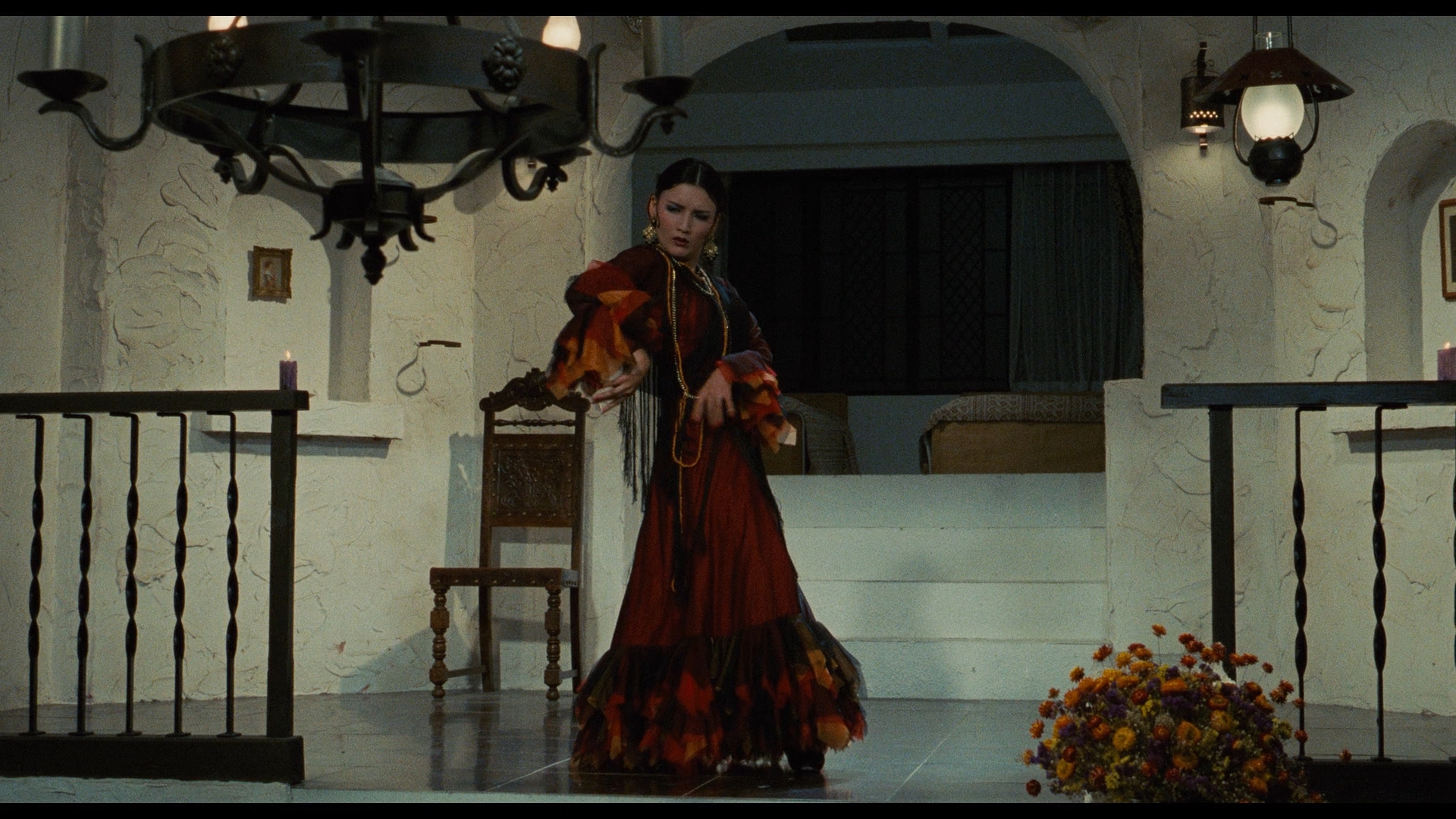 inspired the much-debated final scene, the sequence Kadokawa insisted he cut against much protest, the agreement that he and his star wouldn't get in each other's way with what they intended for the film, and his thoughts on the film as his most important work. Then an interview with Maruyama (22m49s) goes into the process of adapting the source novel for his screenplay, his ongoing collaborations with the director, his work on this back to back with Resurrection of the Golden Wolf, his positive appraisal of the final film, the book's reputation among postwar youths, the motivations he ascribed to the main character, and the challenges of working with Kadokawa. Finally you get a critical appreciation from novelist and screenwriter Jordan Harper (12m29s) discussing the prevalence and role of violence in Japanese and American noir and wider popular culture, the significance of the time setting and its depiction of alienation, the idea of wounded idealism versus nihilism, the inspiration of Jim Thompson, and the standout scenes that really jumped out at him. The disc also comes with reversible sleeve options (including the fantastic original poster art or a new design by Time Tomorrow) plus an insert booklet with a substantial, informative overview of Matsuda's life and career by Tom Mes and "Shadow of the Beast" by Tatsuya Matsuto discussing the film's theatrical release, its impact on him and other young viewers, the ill-advised double bill programming that might have hurt its box office chances, and the scenes that hit hardest for him.
inspired the much-debated final scene, the sequence Kadokawa insisted he cut against much protest, the agreement that he and his star wouldn't get in each other's way with what they intended for the film, and his thoughts on the film as his most important work. Then an interview with Maruyama (22m49s) goes into the process of adapting the source novel for his screenplay, his ongoing collaborations with the director, his work on this back to back with Resurrection of the Golden Wolf, his positive appraisal of the final film, the book's reputation among postwar youths, the motivations he ascribed to the main character, and the challenges of working with Kadokawa. Finally you get a critical appreciation from novelist and screenwriter Jordan Harper (12m29s) discussing the prevalence and role of violence in Japanese and American noir and wider popular culture, the significance of the time setting and its depiction of alienation, the idea of wounded idealism versus nihilism, the inspiration of Jim Thompson, and the standout scenes that really jumped out at him. The disc also comes with reversible sleeve options (including the fantastic original poster art or a new design by Time Tomorrow) plus an insert booklet with a substantial, informative overview of Matsuda's life and career by Tom Mes and "Shadow of the Beast" by Tatsuya Matsuto discussing the film's theatrical release, its impact on him and other young viewers, the ill-advised double bill programming that might have hurt its box office chances, and the scenes that hit hardest for him.![]()